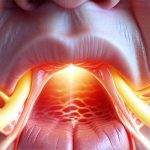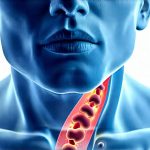The discomfort following a large meal, particularly one enjoyed late at night, is an almost universal experience. It’s a familiar feeling – a burning sensation in the chest, bloating, nausea, perhaps even a sour taste lingering in the back of your throat. These symptoms aren’t merely inconvenient; they signify that our digestive system is working overtime, struggling to process a substantial influx of food. Understanding why this happens and, more importantly, what steps we can take to manage these uncomfortable after-effects is crucial for maintaining both physical comfort and overall well-being. Often, these post-meal experiences are temporary and resolve on their own, but frequent or severe occurrences warrant attention and potential lifestyle adjustments.
The digestive process is a complex interplay of mechanical breakdown, chemical digestion, and absorption. Large meals, especially those rich in fats, proteins, or spicy foods, place an increased burden on this system. Late-night eating compounds the issue because our metabolic rate naturally slows down as we prepare for sleep. This means food stays in the stomach longer, increasing the likelihood of acid reflux and indigestion. It’s not necessarily about avoiding indulging occasionally; it’s about being prepared to manage the consequences and adopting strategies to minimize discomfort when these situations arise. Recognizing the underlying causes is the first step toward effective management. Perhaps gentle gut healing meals could help ease the process after a particularly challenging meal.
Understanding Acid Buildup & Indigestion
Acid buildup, often experienced as heartburn, isn’t a problem with excess stomach acid itself in most cases; it’s usually about acid flowing back up into the esophagus – the tube connecting your mouth to your stomach. This is known as acid reflux. Several factors contribute to this: a weakened lower esophageal sphincter (LES), which acts like a valve between the esophagus and stomach, dietary choices, eating habits, and even body position. Large meals stretch the stomach, putting pressure on the LES, making it easier for acid to escape upwards. Fatty foods take longer to digest, keeping the LES relaxed for an extended period.
Indigestion, or dyspepsia, is a broader term encompassing discomfort in the upper abdomen. It can manifest as bloating, fullness, nausea, belching, and sometimes even vomiting. Unlike heartburn, which specifically relates to acid reflux, indigestion can result from various factors beyond just acid – including slow stomach emptying, food sensitivities, stress, or even certain medications. The combination of a large meal and late-night timing creates an environment ripe for both acid buildup and indigestion, leading to a particularly unpleasant experience. It’s important to differentiate between occasional indigestion and persistent symptoms, as the latter may indicate an underlying medical condition requiring professional evaluation. If you suspect this is the case, it’s vital to seek advice – understanding acid reflux can be a great first step.
The connection between these two is strong. Acid reflux can cause indigestion, and indigestion can exacerbate reflux symptoms. For example, a full stomach can contribute to more frequent reflux episodes, while acid irritation of the esophageal lining can lead to chronic indigestion. Addressing both aspects – managing acid levels and easing digestive discomfort – is therefore key to finding relief. Lifestyle changes are often the first line of defense, but understanding your individual triggers and sensitivities is paramount for long-term management.
Soothing Immediate Symptoms
When symptoms strike after a large meal, immediate action can provide quick relief. – First, avoid lying down immediately after eating. Gravity helps keep stomach acid where it belongs. Instead, remain upright or take a gentle walk to aid digestion. Can regular walking actually help reduce acid production? – Second, consider sipping on water. This can help dilute stomach acid and flush food through the digestive system. Avoid carbonated beverages, which can exacerbate bloating. – Third, over-the-counter remedies like antacids can offer temporary relief by neutralizing stomach acid. However, these are not a long-term solution and should be used sparingly.
It’s also important to identify what specifically triggers your symptoms. Keeping a food diary can be immensely helpful in pinpointing problematic foods or eating patterns. For example, you might discover that spicy foods consistently worsen your heartburn, or that late-night meals always lead to significant bloating. Once you know your triggers, you can make informed choices about your diet and eating habits. Remember, prevention is often easier than cure. If you notice cramping and flatulence after particularly rich meals, it’s a sign to adjust your diet.
Finally, mindful eating practices play a vital role. Eating slowly, chewing food thoroughly, and avoiding distractions during meal times all contribute to better digestion. Rushing through meals or consuming food while stressed can lead to inadequate chewing and increased air swallowing, both of which promote indigestion. Taking the time to savor your food not only enhances enjoyment but also supports optimal digestive function.
Long-Term Dietary Adjustments
Making sustainable dietary changes is crucial for preventing acid buildup and indigestion in the long run. – Reducing intake of trigger foods – such as fatty or fried foods, spicy dishes, citrus fruits, tomatoes, chocolate, caffeine, and alcohol – can significantly lessen symptoms. – Increasing fiber intake promotes healthy digestion and prevents constipation, which can contribute to bloating and discomfort. Good sources of fiber include whole grains, fruits, vegetables, and legumes.
- Portion control is also essential. Smaller, more frequent meals put less strain on the digestive system than large infrequent ones. Consider adopting a strategy of eating smaller portions throughout the day rather than consuming one or two large meals. – Hydration plays a key role in digestion; drinking plenty of water helps keep food moving through the digestive tract and prevents constipation.
Beyond specific foods, pay attention to how you prepare your meals. Baking, grilling, or steaming are generally easier on the stomach than frying. Adding herbs and spices – such as ginger, chamomile, and peppermint – can also aid digestion and soothe symptoms. However, be mindful that some spices may trigger heartburn in sensitive individuals. GERD and itching ears are less common but worth noting if you experience them.
Lifestyle Modifications for Digestive Health
Diet isn’t the only factor influencing digestive health; lifestyle plays a significant role too. – Regular exercise promotes healthy bowel movements and reduces stress, both of which contribute to better digestion. Aim for at least 30 minutes of moderate-intensity exercise most days of the week. – Managing stress is paramount, as stress can significantly disrupt digestive function. Techniques such as yoga, meditation, deep breathing exercises, or spending time in nature can help reduce stress levels and improve overall well-being.
- Elevating the head of your bed by 6-8 inches can help prevent acid reflux during sleep. This can be achieved using bed risers or a wedge pillow. – Avoid eating within 2-3 hours of bedtime, allowing sufficient time for digestion before lying down. – Consider evaluating your clothing choices; tight-fitting clothing can put pressure on the abdomen and exacerbate symptoms. Opt for loose-fitting garments that allow for comfortable breathing and movement. Prioritizing sleep is also crucial, as inadequate rest can worsen digestive issues and overall health. If you experience GERD and lightheadedness after meals, it’s important to understand the potential causes.


















